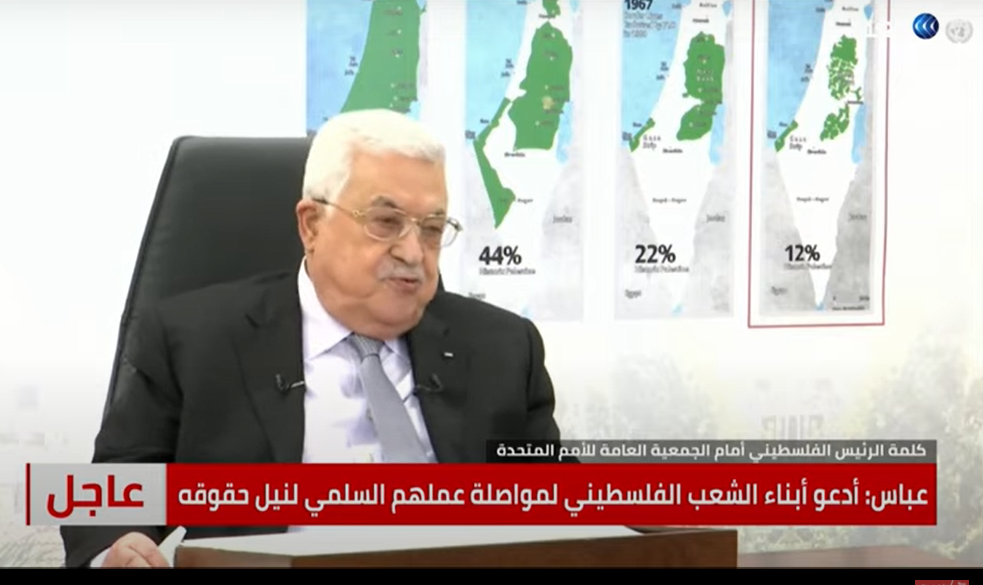In the coming weeks, a joint security committee comprised of representatives from Israel, PA, the US, Egypt, and Jordan is set to convene in Sharm el-Sheikh.
The primary agenda will be to discuss strategies for strengthening the PA’s authority.
Both Israeli Prime Minister Netanyahu and Defense Minister Galant have granted their approval for a series of measures aimed at bolstering the PA.
Israel is soon expected to present an extensive plan to both the US and the PA.
This plan will encompass additional security and economic initiatives, all designed to prevent the PA from collapsing.
Mahmoud Abbas is taking steps to fortify the PA’s position within the Palestinian community.
His efforts include attempts to regain security control in northern Samaria.
This endeavor seeks to undo the decline in international legitimacy that the PA has experienced over the past two years, a decline that gained momentum after the “Guardian of the Walls” operation in May 2021.
According to sources within the Fatah movement, the Palestinian leadership has embarked on a series of actions to achieve these goals, with completion expected in the upcoming weeks.
In the first phase of this strategy, Mahmoud Abbas surprisingly initiated the early retirement of 12 governors from the West Bank and Gaza Strip.
He has established a special committee responsible for recommending replacements for these positions.
The replacement of governors has affected districts such as Jenin, Nablus, Qalqilya, Tulkarm, Bethlehem, Hebron, Tubas, and Jericho.
Notably, the governors of Ramallah and Salafit districts have remained unchanged.
In the Gaza Strip, governors in the districts of Gaza, Khan Yunis, and Rafah have been replaced.
It is worth mentioning that most of the replaced governors in the West Bank were closely aligned with Fatah Secretary General Jibril Rajoub.
Some observers perceive this move as an effort by Mahmoud Abbas to strengthen the position of Majed Faraj and Hussein al-Sheikh in a succession battle.
Jibril Rajoub, their opponent, has opposed rapprochement with Israel and the US.
The subsequent phase, the timing of which remains undetermined, is expected to involve the replacement of the current government led by Muhammad Ishtayeh.
Sources within Fatah reveal tensions between Abbas and Prime Minister Ishtayeh, with Abbas attributing the PA’s economic challenges and loss of control in northern Samaria to Ishtayeh’s leadership.
Abbas notably avoided taking Ishtayeh with him to the recent reconciliation meeting of Palestinian factions in Cairo.
Ziad Abu Amru, a former Foreign Minister, is reportedly being considered to replace Ishtayeh as Prime Minister, as per Fatah sources.
While PA officials contend that these moves will help restore the PA’s position and security control in northern Samaria, senior Israeli security officials remain skeptical.
They perceive Abbas’ actions as mere window dressing aimed at restoring the PA’s international legitimacy.
Moreover, there is a lack of clear commitment from Abbas to decisively combat armed groups in northern Samaria.
He seems to be pursuing their dissolution through persuasion and incentives, with limited success.
The Palestinian population remains distrustful of Abbas’ new measures, viewing them primarily as a public relations campaign to appease the US and Israel.
Many perceive Abbas and his inner circle, colloquially referred to as “Sahija” (the flatterers and self-interested), as a group of corrupt individuals who urgently need to be removed from power.
Israel remains cautious about these actions undertaken by the PA, as they do not reflect a genuine determination to combat terrorism.
Mahmoud Abbas appears to be trying to navigate a delicate balance, seeking to maintain his position, extract security and economic benefits from both Israel and the international community, all while avoiding the costs associated with actively combating terrorism.
In conclusion, while Mahmoud Abbas is making efforts to restore the PA’s standing, the ultimate responsibility for combating terrorism in Judea and Samaria still lies with the IDF and Shin Bet.




